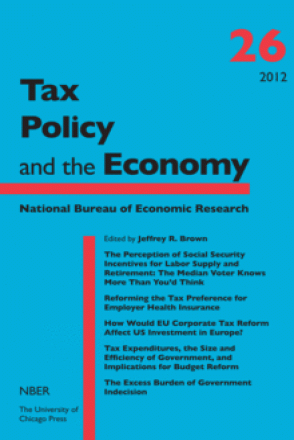Reforming the Tax Preference for Employer Health Insurance

You may be able to download this chapter for free via the Document Object Identifier.
The tax preference for employer-sponsored health insurance contributes to the very high level of health spending in the United States. In this paper, we consider the consequences for spending of one approach to reducing this preference: giving people with health insurance an additional deduction for their expected out-of-pocket spending, that is, an additional deduction that declines as the actuarial value of their insurance rises. We show that this approach would reduce health spending more and have a smaller budget cost than the deduction for actual out-of-pocket spending analyzed by Cogan, Hubbard, and Kessler by encouraging a shift to higher-copayment health insurance. We estimate that a deduction for expected out-of-pocket expenses would reduce private health spending by $86 billion in 2010 at a budget cost of approximately $5 billion. We conclude that, under reasonable assumptions about consumers’ valuation of this incremental spending and the cost of public funds, such a deduction would be welfare improving.
-
-
Copy CitationJoseph Bankman, John Cogan, R. Glenn Hubbard, and Daniel P. Kessler, Tax Policy and the Economy, Volume 26 (University of Chicago Press, 2012), chap. 2, https://www.nber.org/books-and-chapters/tax-policy-and-economy-volume-26/reforming-tax-preference-employer-health-insurance.Download Citation


